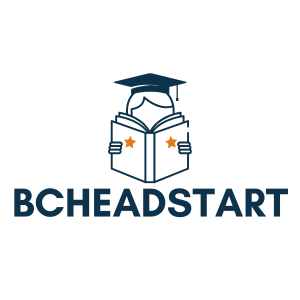In a world where challenges lurk around every corner like a cat ready to pounce, having a growth mindset can be your secret weapon. It’s the difference between seeing a setback as a dead end or a detour on the road to success. Picture this: instead of throwing in the towel when the going gets tough, you whip out that towel and use it to wipe the sweat off your brow, ready to tackle the next obstacle with renewed vigor.
Embracing a growth mindset isn’t just about being optimistic; it’s about transforming failures into stepping stones for success. It’s like having a personal cheerleader in your head, reminding you that every mistake is just a plot twist in your epic story. So buckle up and get ready to explore how adopting this mindset can turn everyday challenges into opportunities for growth and achievement.
Table of Contents
ToggleUnderstanding Growth Mindset
A growth mindset empowers individuals to embrace challenges and pursue learning opportunities. This outlook fosters resilience and strengthens problem-solving abilities.
Definition and Key Concepts
A growth mindset, defined by psychologist Carol Dweck, represents the belief that abilities and intelligence can develop through effort and learning. Key concepts include embracing challenges, persisting through obstacles, and seeing effort as a pathway to mastery. Individuals applying this mindset view feedback as a constructive tool rather than criticism. They prioritize the importance of learning over the fear of failure. This perspective nurtures a love for learning, facilitating personal and professional growth.
Historical Background
The concept of a growth mindset emerged through Carol Dweck’s research in the 1980s. She studied the effects of mindset on achievement, identifying two primary attitudes: growth and fixed. Those with a fixed mindset see abilities as immutable, while those with a growth mindset adapt and evolve. Research revealed that students exhibiting a growth mindset performed better academically and demonstrated greater resilience in the face of challenges. This foundational work laid the groundwork for understanding how mindset influences personal development and success.
Benefits of Growth Mindset

A growth mindset provides numerous advantages in various aspects of life. Individuals who adopt this mindset experience positive changes in learning and personal development.
Impact on Learning
Embracing a growth mindset significantly enhances learning outcomes. Students viewing challenges as opportunities for growth engage more actively in their education. Increased motivation often leads to greater persistence in the face of difficulties. Research indicates that learners adopting this mindset achieve higher academic performance compared to their fixed mindset peers. Feedback serves as a valuable resource for improvement, encouraging learners to refine their skills. Adaptability in learning approaches becomes a hallmark of this mindset, enabling individuals to explore new strategies effectively.
Influence on Personal Development
Personal growth flourishes in an environment that fosters a growth mindset. Individuals pursuing development set ambitious goals and take calculated risks. Happiness levels often increase when they see failures as stepping stones rather than setbacks. Moreover, improved self-awareness and emotional intelligence emerge from recognizing one’s own areas for growth. Relationship-building skills advance as a result of seeking constructive feedback from others. Increased resilience develops through overcoming adversity and learning from experiences. Growth-oriented individuals often cultivate a lifelong passion for learning, which enhances their overall quality of life.
Developing a Growth Mindset
Cultivating a growth mindset involves adopting specific techniques and strategies as well as overcoming fixed mindset traps.
Techniques and Strategies
Utilizing specific techniques can significantly foster a growth mindset. Setting attainable goals motivates individuals to stretch their abilities. Embracing challenges, even when they feel daunting, encourages resilience. Actively seeking feedback allows individuals to learn from others. Reflecting on past experiences enhances self-awareness. Celebrating small victories reinforces progress. Engaging with a learning community provides support and accountability.
Overcoming Fixed Mindset Traps
Identifying and overcoming fixed mindset traps is essential. Recognizing when negative self-talk arises can help diffuse its impact. Reframing failures as learning opportunities shifts perspective. Surrounding oneself with supportive individuals promotes a positive environment. Utilizing affirmations to reinforce strengths contributes to greater self-belief. Continuous practice of self-compassion nurtures growth and reduces fear of failure.
Growth Mindset in Education
Growth mindset plays a significant role in education by creating an environment where students thrive. This approach fosters resilience, encourages a love of learning, and promotes personal development.
Role of Educators
Educators play a crucial role in cultivating a growth mindset in their students. They model growth-oriented attitudes by embracing challenges and demonstrating persistence through obstacles. Providing constructive feedback helps students learn from their mistakes. Encouragement from teachers reinforces that intelligence and abilities can develop with effort. Teachers can foster a supportive atmosphere by celebrating individual progress and encouraging collaboration among students. Exposure to diverse learning strategies also empowers students to find their unique paths to success. Implementing a growth mindset framework enhances both teaching practices and student engagement.
Classroom Applications
Classroom applications of a growth mindset can transform educational experiences. Teachers can incorporate activities such as goal-setting exercises where students define their learning objectives. Group discussions around failures and growth encourage open dialogues about challenges. Incorporating reflection exercises promotes self-awareness and helps students recognize their progress. Utilizing technology to provide instant feedback enhances learning and adaptability. Engaging students in collaborative projects nurtures problem-solving skills. Each of these strategies cultivates a mindset that views challenges as opportunities rather than setbacks.
Growth Mindset in the Workplace
Growth mindset in the workplace fosters innovation and resilience. Employees with a growth mindset tackle challenges with enthusiasm and seek out opportunities to learn.
Fostering a Positive Culture
A positive culture nurtures collaboration and support. Organizations emphasizing growth mindset principles encourage open communication. Leadership plays a vital role by modeling growth-oriented behaviors and recognizing efforts in team settings. Team-building exercises promote trust, where individuals share experiences and learn from challenges faced collectively. Feedback becomes a common language, guiding continuous improvement rather than criticism. Celebrating small wins reinforces motivation and cultivates a shared sense of accomplishment among team members.
Measuring Success
Data-driven metrics help gauge the impact of a growth mindset. Regular assessments can track employee engagement, creativity, and overall performance. Surveys that solicit feedback on workplace challenges and learning opportunities provide insights into team dynamics. Performance reviews focused on growth enable individual goal setting and personal development. Additionally, analyzing project outcomes reveals how adaptability contributes to success. By establishing clear benchmarks, organizations can quantify improvements and adapt their strategies, ensuring alignment with growth mindset objectives.
Adopting a growth mindset can transform the way individuals approach challenges and setbacks. By viewing obstacles as opportunities for growth they cultivate resilience and enhance their problem-solving skills. This mindset not only impacts personal development but also fosters a positive environment in educational and workplace settings.
As individuals embrace challenges and seek out learning experiences they unlock their potential and pave the way for success. The journey toward a growth mindset is continuous and rewarding leading to improved self-awareness and emotional intelligence. Ultimately this mindset empowers individuals to thrive in all aspects of life fostering a lifelong passion for learning and personal growth.

